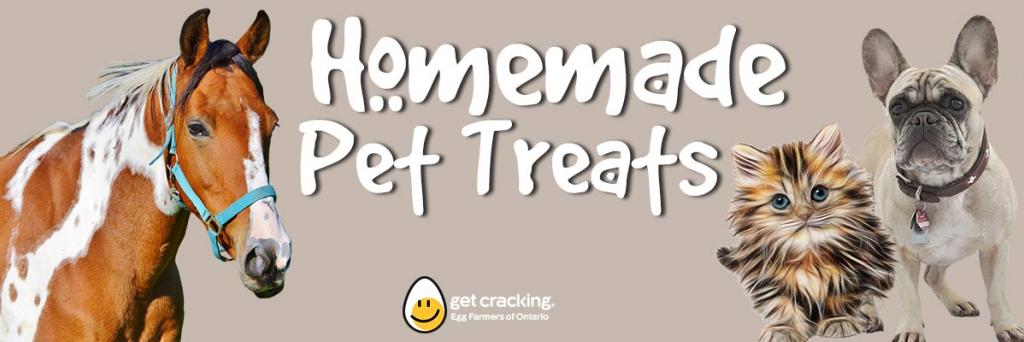Homemade pet treats for the fur baby in your life
Good nutrition is as important for pets as it is for people.
Treats can be a healthy part of your dog, cat or horse’s diet…and they love them as much as we humans do. Most veterinarians recommend that treats make up no more than 10% of a pet’s diet. It is best to offer your pet only healthy, nutritious treats and avoid high fat or high sugar ones.
Use treats to help train your pet, to reward an accomplishment (like doing a special trick) or to celebrate a special occasion such as a birthday. These or any other pet treats should not take the place of recommended pet food in your pet’s diet.
These recipes are all pet-tested – and approved. They are made with inexpensive and readily available ingredients – many of which are likely already in your kitchen.
As with humans, pets’ individual tastes will vary. Some of these treats may be more popular with your pet than others. It’s a bit of trial and error.
Don’t have a pet? Why not consider using one or more recipes for a unique gift to a special pet in someone else’s life? Make sure the gift is presented in a metal tin, glass jar or re-sealable plastic container. This will discourage pets with a keen sense of smell from breaking or chewing into the gift and having ‘many’ treats.
Canola oil and eggs are healthy ingredients that can contribute to a healthy diet for humans as well as pets. Eggs are an excellent source of high quality protein; they also contain many vitamins and minerals. Canola is a healthy fat choice as it is the lowest in ‘bad’ (saturated) fats, and relatively high in ‘good’ (monounsaturated) fats. It is also a good source of omega-3 fatty acids.
Help keep your pet at a healthy weight. Remember that treats are just that – treats! They should complement – not substitute – for regular pet food.
Try these treats today!
- Treats for Training – Milk Bones
- Doggie Treats – Gingerbread Mailmen
- Horse Treats – Muffins for Horses
- Cat treats – Cat Chow Cookies
- Equestrian Treats – Pony Cookies
Have a pet with allergies, sensitivities or medical conditions? Consult a veterinarian before giving these – or any – pet treats.
As the Canadian Veterinary Medical Association does not recommend raw food diets – mainly for reasons of food safety – none of these recipes are raw pet treats, and all the eggs have been thoroughly cooked.
The information presented here is for general information purposes only and should not replace the professional consultation, the diagnostic, or the medical advice of a veterinarian.


